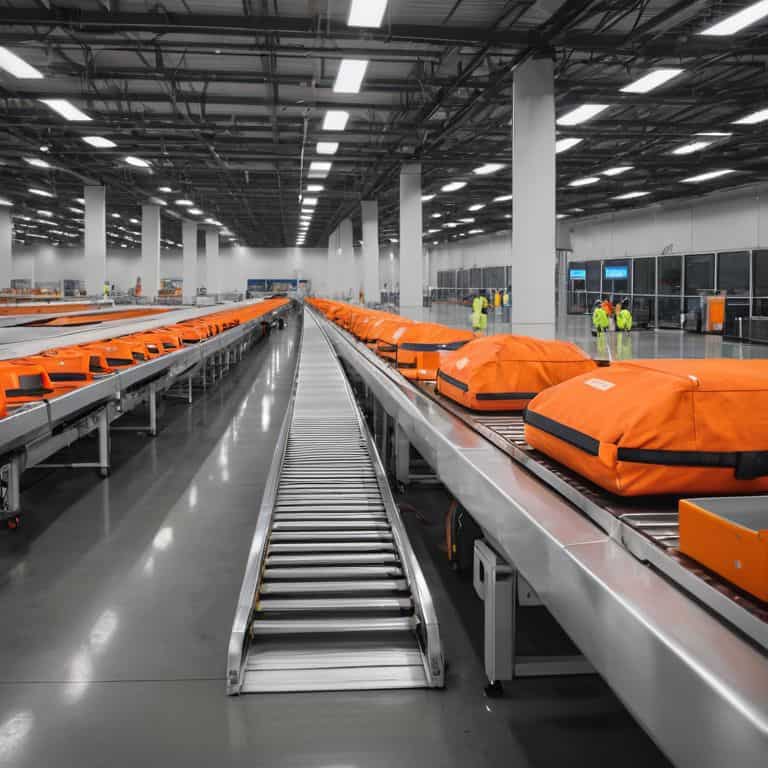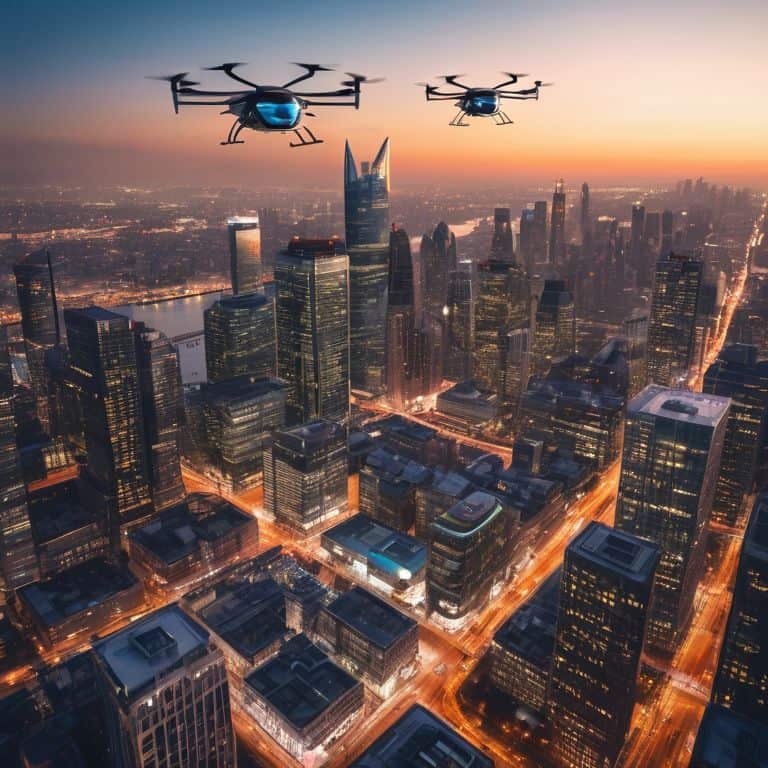I still remember the frustration of waiting at the baggage claim, watching as suitcase after suitcase passed by on the conveyor belt, only to have mine be one of the last ones to appear. It’s a feeling I’m sure many of us can relate to, and it’s exactly why I’m excited to dive into the future of airport baggage handling. As someone who’s spent years working behind the scenes in airports, I’ve seen firsthand the complex systems that make air travel possible. But despite the advancements in technology, baggage handling remains one of the most frustrating aspects of flying. It’s time to rethink the way we approach this critical part of the travel experience.
In this article, I promise to cut through the hype and provide a no-nonsense look at the real innovations shaping the future of airport baggage handling. I’ll draw on my experience as a systems consultant to highlight the often-overlooked improvements that are making a tangible difference in the efficiency and reliability of baggage handling systems. From intelligent conveyor belts to advanced tracking technologies, I’ll explore the practical solutions that are transforming the way airports manage baggage. My goal is to give you a clear understanding of what’s working, what’s not, and what you can expect from the future of airport baggage handling.
Table of Contents
Revolutionizing Airport Baggage
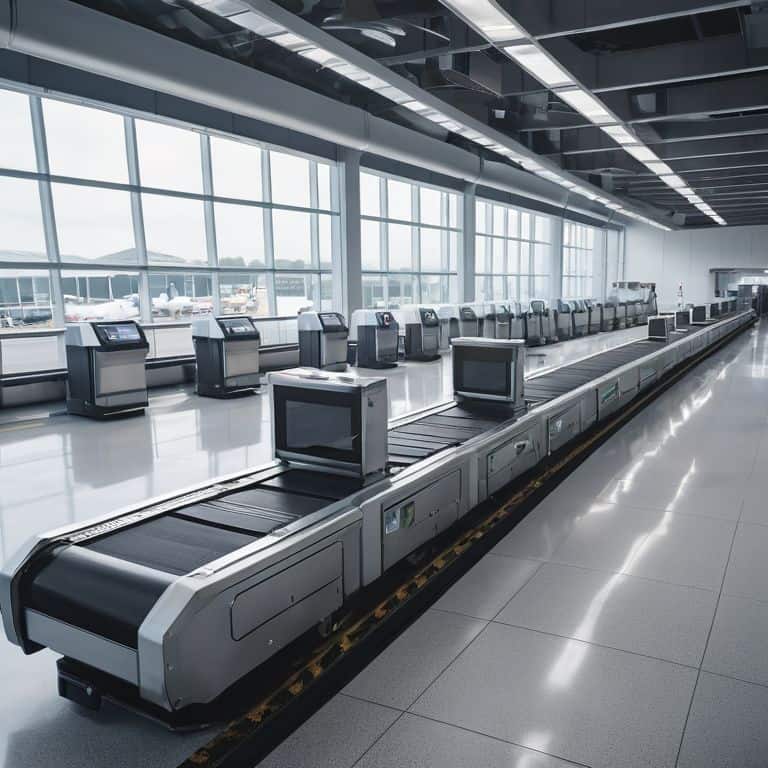
As I delve into the world of airport baggage handling, I’m excited to share some groundbreaking developments that are set to revolutionize the way we travel. One area that’s seen significant innovation is baggage tracking technology, which uses advanced sensors and scanners to monitor the location and status of luggage in real-time. This not only reduces the risk of lost or misplaced bags but also enables airlines to provide more accurate and timely updates to passengers.
The implementation of intelligent baggage handling solutions is another key factor in enhancing airport operations management. These systems use artificial intelligence and machine learning algorithms to optimize baggage sorting and routing, minimizing the need for manual intervention and reducing the likelihood of errors. By streamlining these processes, airports can increase efficiency, reduce costs, and improve the overall passenger experience.
The integration of automated baggage screening is also a significant step forward in airport baggage handling systems. This technology uses advanced imaging and scanning techniques to detect and identify potential security threats, allowing for faster and more efficient screening processes. As these innovations continue to evolve, we can expect to see even more seamless and efficient airport experiences, making air travel more enjoyable and stress-free for all.
Intelligent Baggage Handling Solutions
As I delve into the world of airport baggage handling, I’m excited to explore intelligent sorting systems that are being implemented to streamline the process. These systems use advanced algorithms and machine learning to quickly and accurately sort baggage, reducing the likelihood of lost or misplaced luggage.
I’ve had the chance to witness firsthand how automated baggage handling is transforming the way airports operate. By leveraging robotic systems and data analytics, airports can optimize their baggage handling processes, resulting in faster turnover times and improved passenger satisfaction.
Smarter Baggage Tracking Technology
As I delve into the world of airport baggage handling, I’m excited to explore the cutting-edge solutions being implemented to track our luggage. From RFID tags to advanced barcode scanning, the technology is becoming increasingly sophisticated. This not only reduces the likelihood of lost or misplaced bags but also provides passengers with real-time updates on the whereabouts of their luggage.
The impact of real-time tracking cannot be overstated, as it enables airport staff to respond quickly to any issues that may arise, ensuring a smoother travel experience for all. By leveraging these advancements, airports can significantly improve their overall efficiency and customer satisfaction.
The Future of Airport Baggage Handling
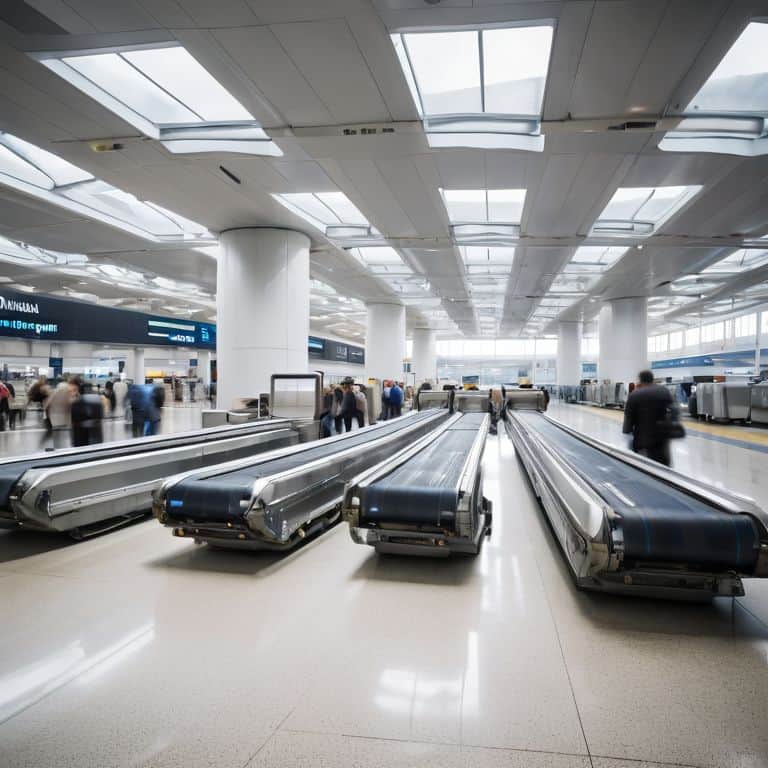
As I delve into the world of airport baggage handling, I’m excited to share my insights on how intelligent baggage handling solutions are transforming the industry. With the rise of automated baggage screening, airports can now process luggage more efficiently, reducing wait times and increasing passenger satisfaction. This shift towards automation is a significant step forward in the future of air travel logistics, enabling airports to handle growing passenger numbers without compromising on service quality.
One of the key drivers of this transformation is the implementation of baggage tracking technology. By providing real-time updates on luggage location, airports can minimize lost or misplaced bags, resulting in a better travel experience for passengers. This technology also enables airports to optimize their baggage handling processes, reducing the need for manual sorting and increasing the overall efficiency of airport operations management.
As we look to the future, it’s clear that automated baggage screening will play a vital role in shaping the airport baggage handling systems of tomorrow. With its potential to enhance security, reduce costs, and improve passenger experience, this technology is poised to revolutionize the way airports handle luggage. By embracing innovation and investing in cutting-edge solutions, airports can stay ahead of the curve and provide a seamless travel experience for passengers.
Automated Baggage Screening Innovations
As I’ve delved into the world of airport baggage handling, I’ve been impressed by the cutting-edge technology being implemented to enhance security and efficiency. Automated baggage screening innovations are a crucial part of this, enabling airports to process luggage quickly and accurately.
The use of artificial intelligence in baggage screening is particularly noteworthy, allowing for real-time threat detection and reducing the need for manual intervention. This not only improves security but also helps to streamline the overall baggage handling process, making air travel smoother and more convenient for passengers.
Optimizing Airport Operations Management
As I’ve delved into the world of airport operations, I’ve come to realize that streamlining processes is crucial for efficient baggage handling. By implementing intelligent systems, airports can reduce congestion and increase throughput, making the travel experience smoother for passengers.
Effective airport operations management relies on real-time data analysis to make informed decisions. By leveraging this data, airports can optimize resource allocation, reduce delays, and improve overall performance, ultimately leading to a more seamless travel experience.
5 Key Takeaways for a Smoother Baggage Handling Future
- I’ve seen firsthand how implementing RFID tracking can significantly reduce baggage mishandling rates, making it a game-changer for airports
- Integrating AI-powered baggage sorting systems can increase efficiency by up to 30%, which is a staggering improvement for airport operations
- Airports that have adopted automated baggage screening have not only enhanced security but also reduced wait times for passengers, making travel more enjoyable
- Optimizing airport operations management through data analytics can help predict and prevent baggage handling bottlenecks, ensuring a smoother travel experience
- By investing in robotic baggage handling solutions, airports can reduce manual labor costs and minimize the risk of baggage damage, leading to increased customer satisfaction
Key Takeaways for the Future of Airport Baggage Handling
I’ve seen firsthand how smarter baggage tracking technology and intelligent handling solutions are set to significantly reduce lost luggage and delays, making air travel more efficient and enjoyable for all
Automated baggage screening innovations and optimized operations management are crucial for enhancing security, streamlining processes, and ensuring that airports can handle increasing passenger numbers without compromising on service quality
The integration of these advancements in baggage handling is not just about improving the passenger experience, but also about creating a more sustainable, efficient, and safe aviation system – which is what gets me excited about the future of flight
Shaping the Future of Air Travel
As we continue to push the boundaries of innovation in airport baggage handling, I firmly believe that the most significant advancements will come not from flashy new technologies, but from the seamless integration of smarter logistics and data-driven insights – it’s this behind-the-scenes magic that will truly revolutionize the way we travel.
Oliver Byrne
Embracing the Future of Airport Baggage Handling
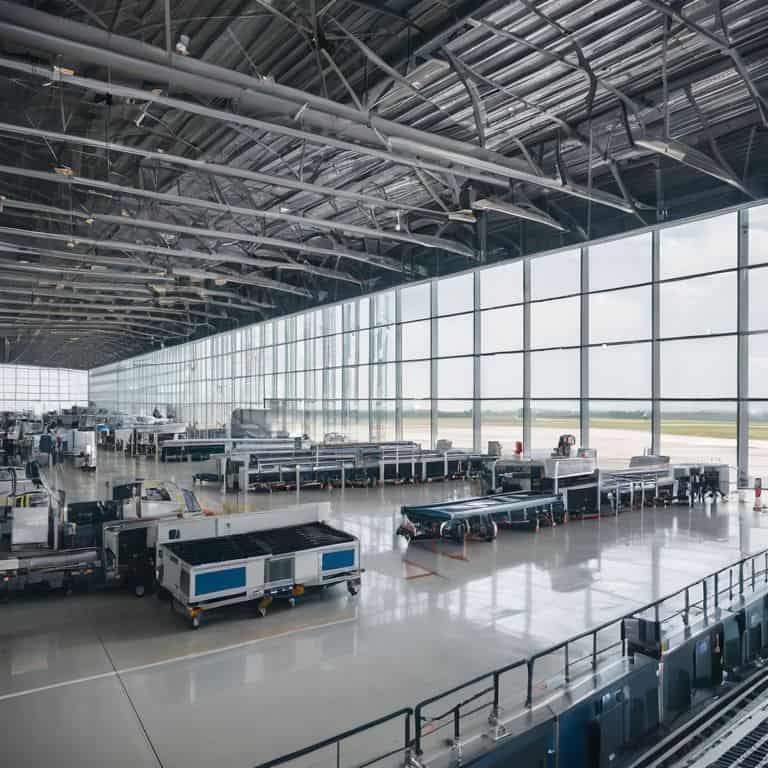
As I reflect on the advancements in airport baggage handling, it’s clear that smarter logistics and innovative design are transforming the industry. From intelligent baggage tracking technology to automated baggage screening innovations, the future of air travel is looking smoother and more efficient. The optimization of airport operations management is also playing a crucial role in reducing congestion and wait times, making the overall travel experience more enjoyable for passengers. By embracing these changes, airports and airlines can improve customer satisfaction, reduce costs, and increase productivity.
As we look to the future, it’s exciting to think about the potential of automated systems and sustainable practices in shaping the next generation of airport baggage handling. By leveraging technology and innovative design, we can create a more seamless, efficient, and environmentally friendly travel experience. As someone who’s passionate about the unseen logistics that make air travel possible, I’m eager to see the impact of these advancements on the industry and the people it serves. The future of airport baggage handling is not just about technology – it’s about creating a better experience for everyone involved.
Frequently Asked Questions
How will the integration of artificial intelligence and machine learning impact the efficiency and accuracy of baggage handling systems?
I’m excited to share that AI and ML are poised to dramatically enhance baggage handling efficiency and accuracy. By analyzing data from various sources, these technologies can predict and prevent baggage mishandling, streamline sorting processes, and even optimize resource allocation, making air travel smoother for all of us.
What role will biometric technologies, such as facial recognition, play in streamlining the baggage check-in and screening process?
I’m excited about the potential of biometric technologies, like facial recognition, to simplify baggage check-in and screening. By integrating these tools, airports can create seamless, secure experiences, reducing wait times and enhancing passenger flow – it’s a game-changer for efficient travel.
How will airports balance the need for increased security measures with the demand for faster and more convenient baggage handling services?
That’s the million-dollar question. I believe airports will strike this balance by integrating AI-driven threat detection with automated baggage handling systems, enabling faster and more efficient screening processes without compromising security. It’s all about leveraging smart logistics to create a seamless travel experience.
